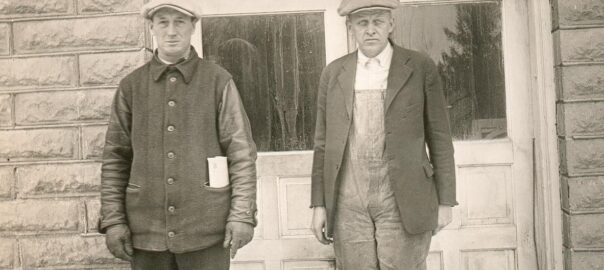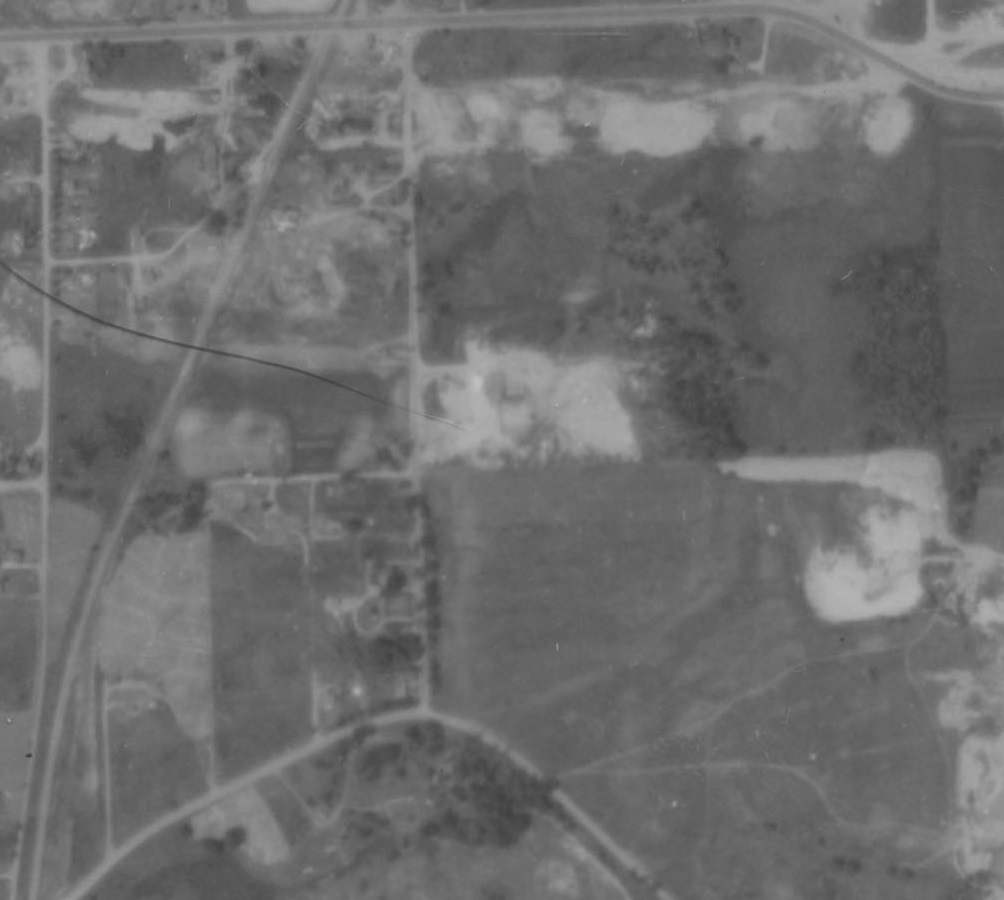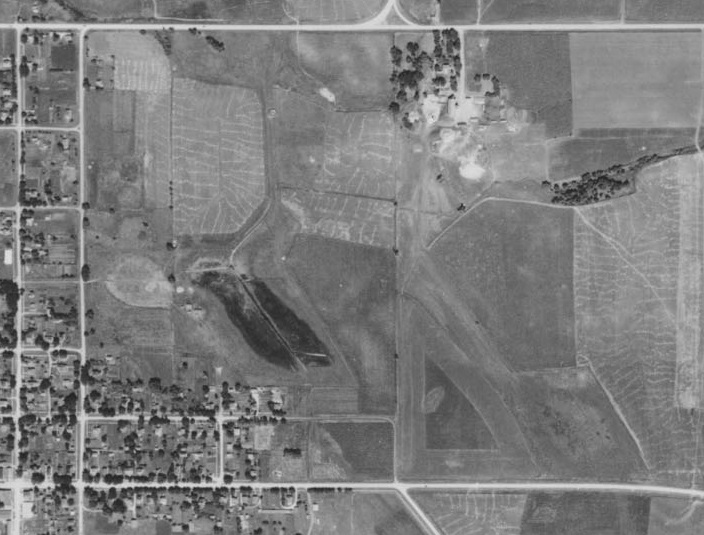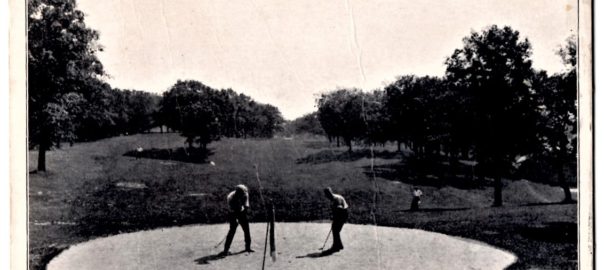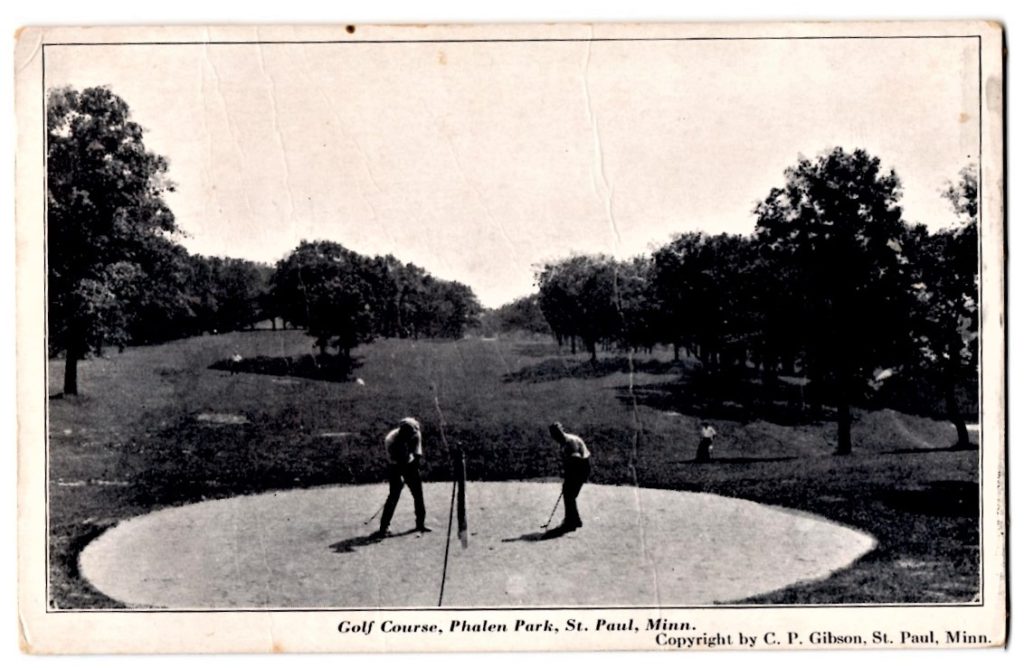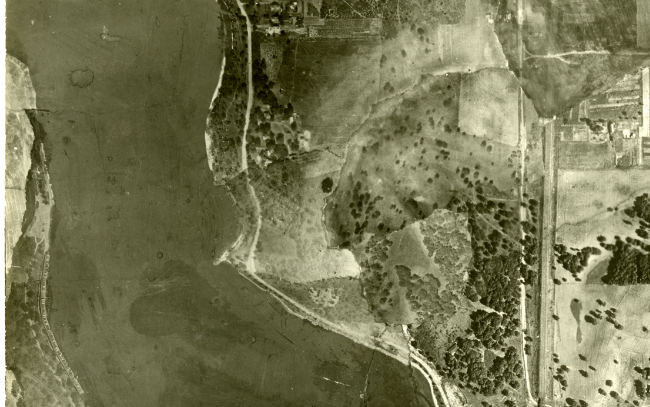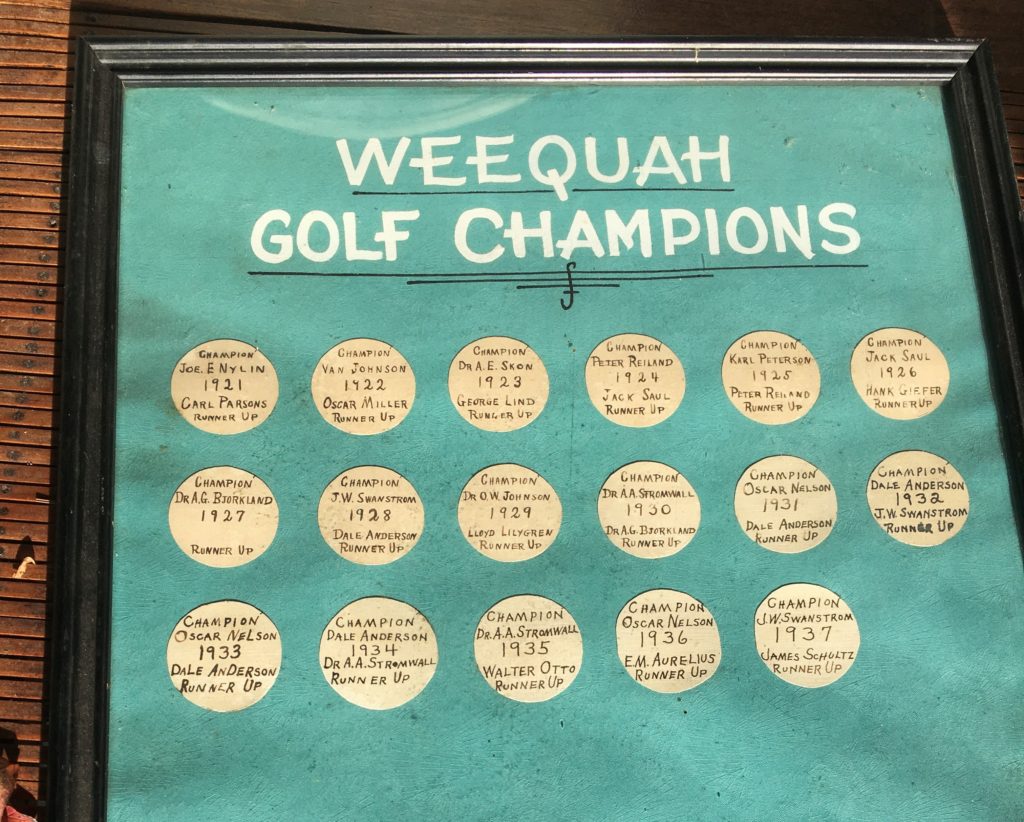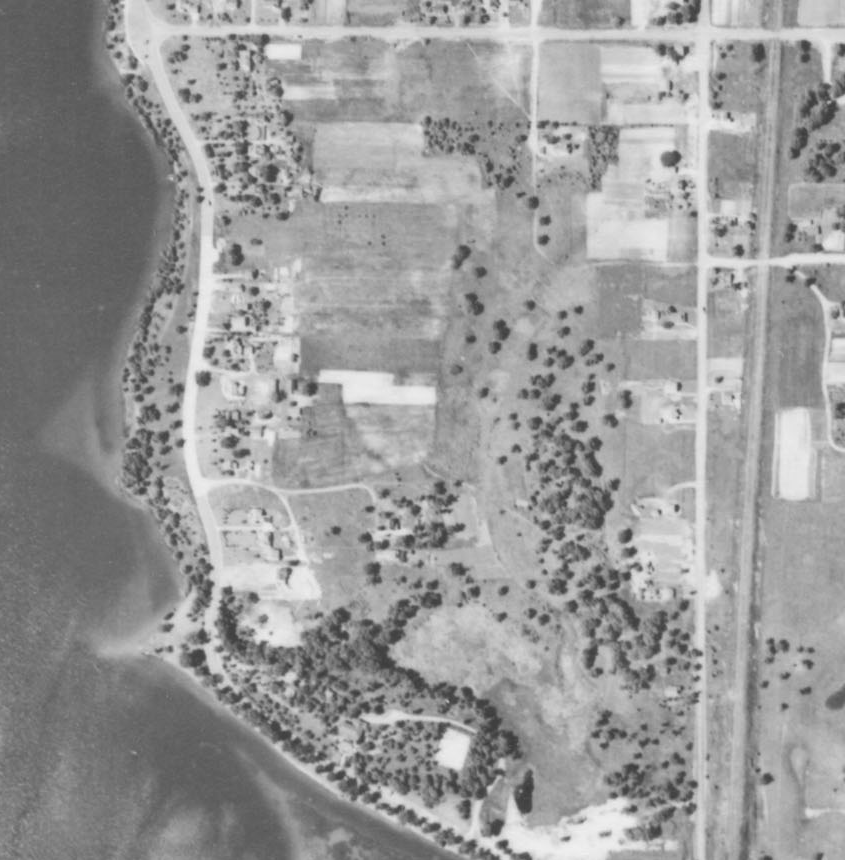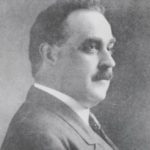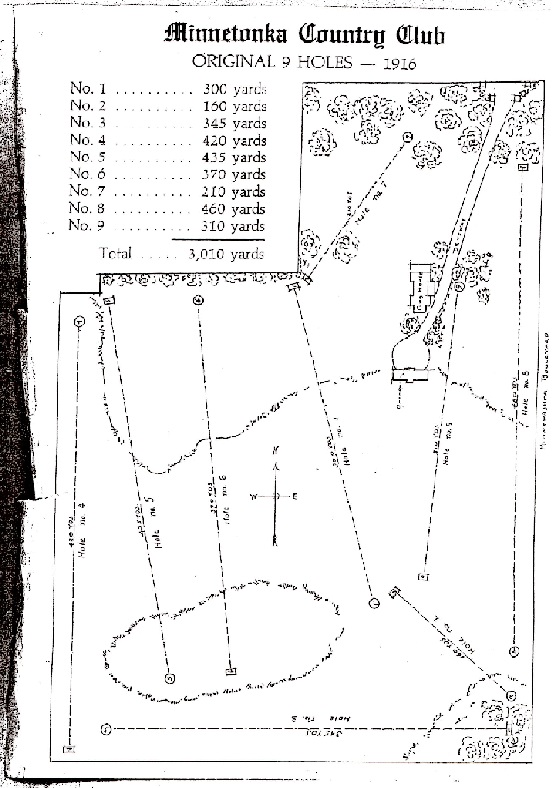There are three “schools” of golf course design: strategic, heroic and penal. Let’s skip the first two. Why? Because.
Penal design, to paraphrase the website Fried Egg Golf, means there’s a lot of stuff that can get in the way of your ball. Fried Egg defines penal design this way: “There is a right way to play a hole. Hit the required shots, which are typically straight down the middle, and get rewarded. Errant shots are punished proportionate to the degree of err.”
Visitors to Adolph Naeseth’s golf course discovered that the hard way.
Naeseth (pronounced Nesseth) established a tree-lined golf course in 1925 on his farm in Wanamingo Township, Goodhue County, about 25 miles northwest of Rochester. Michelle Knutson, member of a prominent golfing family in nearby Zumbrota, in 2007 posted to Ancestry.com a recollection titled “A little history of golf in Zumbrota.” Nearby Naeseth Country Club was included.
“He made his own course,” Knutson wrote of Naeseth. “It was a piece of land that had been used for pasture. There were many trees between holes 2, 3, 4, 5, 6, 7. Holes 1, 8 and 9 were open.”
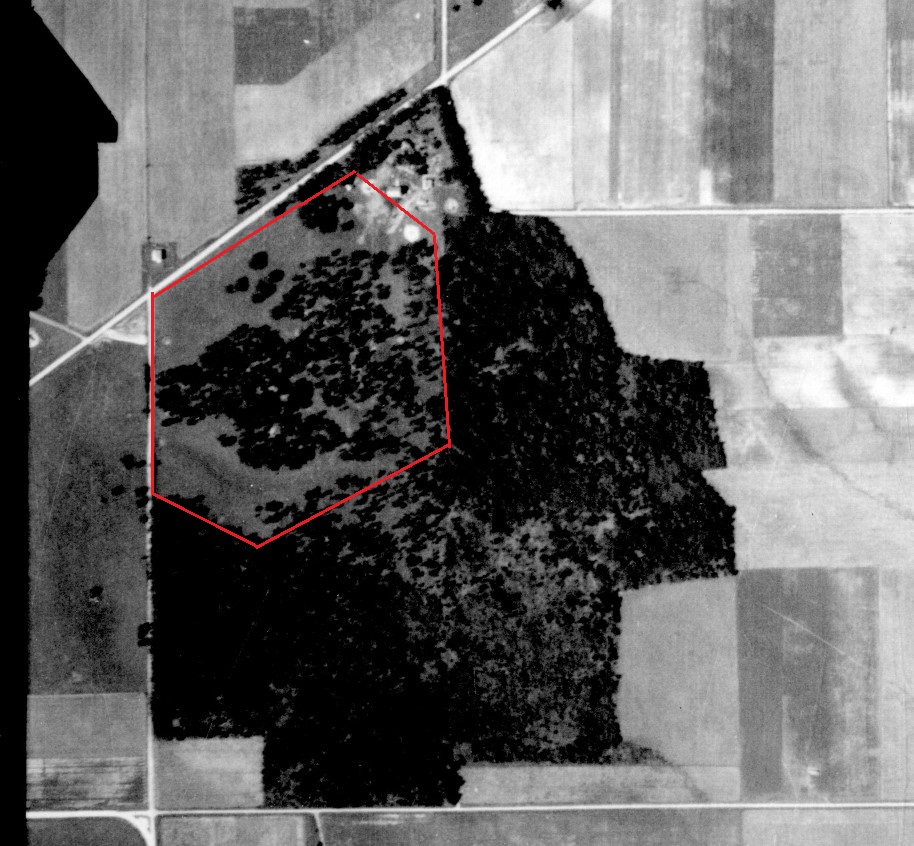
Photo at top of post: Adolph Naeseth, left. Courtesy of Gary Bakko.
In May 1926, golfers from Zumbrota, Lake City Golf Club and Naeseth CC met in Lake City for a competition. The hosts won, the Wanamingo Progress reported (no score was mentioned). Two months later, the Lake City club visited Naeseth’s property and, apparently not ready for penal prime time, played pinball among the hardwoods and was drubbed this time, 36-11 by the Naeseth club. Only six Lake City players out of 17 broke 100 over 18 holes. Naeseth shot the day’s low score, an 86.
The Progress declared the heavily wooded Naeseth course a “mental hazard” for the Lake City group and said it “proved a heavy handicap.” Months earlier, the Progress had called Naeseth CC “a tricky course to play.”
That September, Naeseth won his club championship, defeating someone the Progress identified only as “Dr. Knutson” (presumably Dr. Alfred Knutson of Zumbrota, member of the aforementioned golfing family) with a “record game” of 77-77–154. The Progress congratulated Naeseth for his skill “at the close of his third year of play.”
Well done, for sure, especially for a relative beginner. But it was by far not not the first time Naeseth had starred in an athletic endeavor.
In basketball, Naeseth was a standout at Luther College in Decorah, Iowa. He still shares the Luther school record for most field goals in a game, with 16 in 1907.
And in baseball, his achievements were legendary.
At Luther, Naeseth built pitching credentials that would land him in the school’s athletic hall of fame. In eight games against major college competition, according to his hall of fame profile, he won four times, lost twice and tied twice. Victories came over Minnesota, Wisconsin and Nebraska (twice). He struck out 21 batters in one 15-inning game and, as a senior, struck out three batters in the ninth inning with the bases loaded and no outs to secure a 1-0 victory over Wisconsin.
After graduation, Naeseth returned home to the family farm — his father, Ole K. Naeseth, had been a Minnesota state senator and representative — and played town baseball. One account lists him as having been signed by the St. Paul Saints but having his professional career cut short by an arm injury. An October 1922 entry in the Minneapolis Star noted Naeseth, pitching for Zumbrota, throwing a 12-inning no-hitter with 17 strikeouts and no walks in a game against Lake City.
“Naeseth has been offered a contract with the Chicago White Sox, but his parents have objected,” the Star reported.
In June 1934, Naeseth returned to the pitcher’s mound for the first time in more than a decade and, according to the Progress, “demonstrated that he has lost none of his cunning and little, if any of the control which elevated him to rank among semi-professional pitchers in a glorious and never-to-be-forgotten past.” Translation: He was an ace again. He had just pitched a five-hitter with 18 strikeouts in a Wanamingo victory. That August, in Wanamingo’s 14-9 victory over Hammond to clinch the River Valley League championship, Naeseth struck out 15 batters, running his strikeout total to 126 in 11 games.
He was 48 years old.
At his golf course, play continued into the 1930s, and not much longer. By 1927, Naeseth Country Club had taken on a new identity as Wanamingo Country Club. Newspaper stories mentioning the golf course became more scarce — the last one I could find was a July 1933 Redwood Falls Chronicle tale about a Minneapolis golfer losing his ball in a tree on the fourth hole, then on his second nine pumping another shot into the same tree, dislodging both balls.
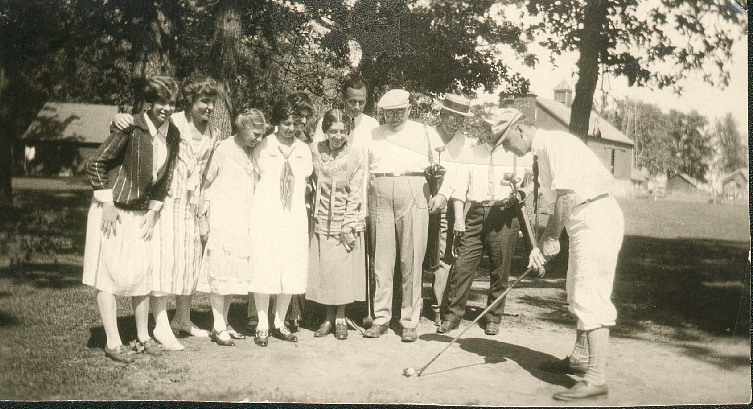
says this is the only known photo of the course.
Gary Bakko, who lives in Wanamingo and has chronicled some of the history of the city and area, was acquainted as a child with Naeseth. The Great Depression, Bakko presumed in a telephone interview, was the “death knell” for Wanamingo Country Club.
Adolph Naeseth died in 1965.
Notes
- Naeseth’s daughter, Barbara, was listed as “golf champion of Goodhue County, 1931” in a 1956 family history written by Gerhard Brandt Naeseth, a well-known librarian and geneaologist and for whom a geneaological center and library at the University of Wisconsin is named.
- In August 1926, the golfers of Naeseth Country Club traveled to Lakeville for a match against another club that is now long gone and largely unremembered. The Naeseth club lost by one stroke to Antlers Park. Naeseth was the medalist with an 81 and won three golf balls, according to the Wanamingo Progress.
- The first president of Naeseth CC was H.E. Hanson of Zumbrota, elected in April 1925. Naeseth headed the rules and regulations committee and greens committee.
- Naeseth CC is lost course No. 249 on my list of documented lost golf courses in Minnesota. Any numbering represents basically only the order in which I came upon the courses. No. 250 and more are surely out there. Drop me a note and tell me about another. Cheers. To view the lost-course map, go here: Minnesota lost course map
